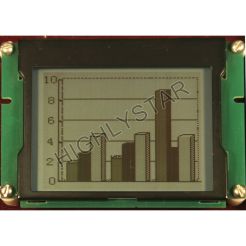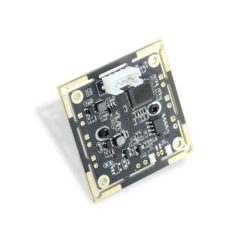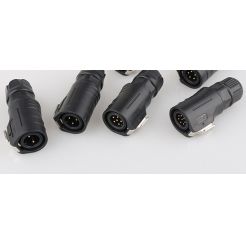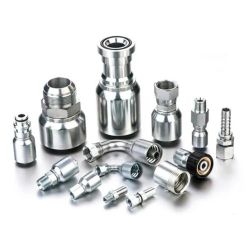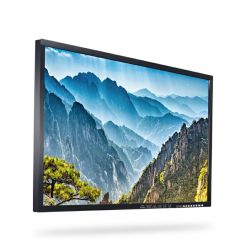SMAJ-SMAJ 18G CLA520 Phase Stable Cable Assembly
• Cable Type: XQY-CLA520-SMAJ-SMAJ-18G • SMA Male, SMA Male • 50Ω, DC-18GHz • 76% Phase Velocity • Shielding Effectivity > 90 dB • Customizable Specifications • Click the “Download” button for the datasheet
Product Description
Description
Phase-stable flexible cable assembly is a type of coaxial cables used for transmitting high-frequency signals with minimum phase variation. These flexible cables have a characteristic impedance of 50Ω and are designed to operate within a frequency range of DC to 18GHz. Phase-stable flexible cable assemblies are an important component in high-frequency communication systems where maintaining signal integrity is critical.
offers superior field-proven performance characteristics with low insertion loss and excellent VSWR in the market, less affected by noise or cross-talk or electromagnetic inference.
Features of phase-stable flexible cable assemblies:
• Low insertion loss: These flexible cables offer low insertion loss, which means that the signal attenuation is minimized during transmission.
• Phase stability: These RF flexible cable assemblies are designed to provide phase stability over a wide range of temperatures and frequencies. This is important for maintaining signal integrity, especially in critical applications where phase variations can cause errors.
• Flexibility: These cables are easy to route and install in tight spaces. They can also be bent without affecting their electrical performance.
• Shielding: These phase stable coaxial cables are shielded to protect against interference from external sources, which can cause signal degradation.
• Durability: These coaxial cables are designed to be rugged and durable, making them suitable for using in harsh environments.
has high flexibility and maintain stable electrical characteristics during bending and movement, with maximum frequency up to 50GHz. This cable assembly offers a good compromise between a small diameter and a capacitance of 50 to 100 pF/m. This coaxial cables have better cut-through resistance so they are more reliable and durable thus contributing to reliable test results, and is ideal for test and measurement applications, as well as aerospace and defense systems.
Applications of phase-stable flexible cable assemblies:
• Aerospace and defense: radar systems, electronic warfare and satellite communication.
• Telecommunications: cellular base stations and microwave links.
• Medical: medical equipment, such as MRI machines and other diagnostic imaging systems.
• Test and measurement: network analyzers and spectrum analyzers.
As a professional RF cable assembly supplier, XINQY provide consumers with high performance RF flexible cable assembly at competitive prices. For any enquiries or customization, please contact us at and we will reply as soon as possible.
SMAJ-SMAJ 18G CLA520 Phase Stable Flexible Cable Assembly
Features Applications
• • Land Mobile Radio & Other
• Huber+Suhner-Sucoflex104 • General Purpose
• Max Frequency 18 GHz • Communication Systems
• Shielding Effectivity > 90 dB • Laboratory Use
• 76% Phase Velocity • Antenna Installations
• Low Insertion Loss • Cellular & Wi-Fi Systems
• One Time Bend Radius of 0.512 Inches
Phase stable RF cables VS phase matched RF cables
Phase stability refers to the ability of an RF cable to maintain a consistent phase relationship between the signals that pass through it, even as the cable is bent or subjected to other mechanical stresses. Phase stability is important in applications where accurate timing or synchronization of signals is critical.
Phase matching refers to the process of selecting two or more cables with precisely matched electrical characteristics, such as impedance and propagation delay, to ensure that the signals that pass through them arrive at their destination in phase with each other. This is important in applications such as microwave systems and antenna arrays, where the phase relationship between signals has a significant impact.
While both phase stability and phase matching are important characteristics of RF cables, they are not the same thing. Phase stable cables may or may not be phased matched, depending on the application and the specific requirements of the system. Conversely, phase matched cables may or may not be phased stable, depending on the design and construction of the cable.
Product Characteristics

|
|
|
|
|
Structure Characteristics |
|
|
|
Structure |
Performance |
Standard Value |
|
1.Inner Conductor |
Material |
Silver Plated Copper |
|
Constructure |
0.051 in [1.29mm](Single core) |
|
|
Diameter |
0.051 in [1.29mm] |
|
|
2.Insulation |
Material |
LD-PTFE |
|
Diameter |
0.118 in [3.91mm] |
|
|
3.Inner shield |
Material |
Silver Plated Copper Strip |
|
Diameter |
0.154 in [4.15mm] |
|
|
4.Interlayer |
Material |
LD-PTFE |
|
Diameter |
0.174 in [4.42mm] |
|
|
5.Outer shield |
Material |
Silver Plated Copper Wire |
|
Diameter |
0.190 in [4.82mm] |
|
|
6.Jacket |
Material |
Blue FEP |
|
Diameter |
0.205 in [5.20mm] |
|
|
Connector |
Connector 1 Type |
SMA Male (SMAJ) |
|
Connector 2 Type |
SMA Male (SMAJ) |
|
|
Inner Conductor Material |
Gold Over Nickel Plated Beryllium Copper |
|
|
External Conductor Material |
Passivated stainless steel |
|
|
Mating Cycles |
≥ 500 |
|
|
Cable Electrical Characteristics |
|
|
Impedance |
50Ω |
|
Capacitance |
88pF/m |
|
Velocity of Propagation |
76% |
|
Max Operating Frequency |
28GHz(Without Connector)/18GHz(With Connector) |
|
Screening Effectiveness |
>90dB |
|
Dielectric Withstanding Voltage |
1800V@DC |
|
Phase Change VS Bending |
±0.2°/GHz |
|
Mechanical Characteristics |
|
|
Bending Radius/Single |
1.024 in [26.00mm] |
|
Bending Radius/Repeated |
2.047 in [52.00mm] |
|
Weight |
0.067kg/m |




